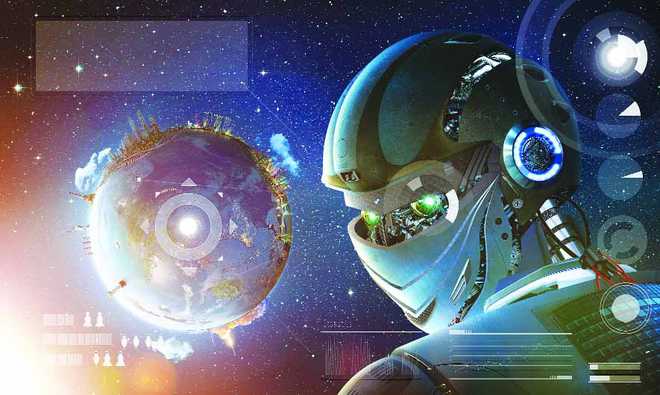
Vijay C Roy in Chandigarh & Suresh Dharur in Hyderabad
- In 1997, IBM supercomputer Deep Blue defeated reigning chess champion Garry Kasparov in New York. That was the first defeat of the champion under tournament conditions. The previous year in Philadelphia, Kasparov had given Deep Blue a run for its money.
- In March this year, Google’s AlphaGo system defeated Korean grandmaster Lee Sedol in the final Go game (a strategy board game in which two rivals vie to surround territory) in South Korea’s capital Seoul. AlphaGo received $ 1million, which was distributed to charities and Go outfits. Lee drew $170,000.
- In a recent shootout at Dallas, US, a remote-controlled robot, carrying explosive substance, was deployed to kill a suspect. While robots are commonly used in bomb disposal and other military surveillance operations, this was the first case of application to neutralize a suspect on the ground.
Those are the instances of how machines are getting smarter. In today’s parlance, this is artificial intelligence, the next in-thing, which is said to redefine the way we’d live, maybe love, and behave. Want to know more, read on: Banihal.com is a neuroscience-based recommendation engine for finding a life partner. By marrying artificial intelligence with neuroscience research, the advanced search technology is the centerpiece of its matchmaking service. “The system comes with chat and audio services,” says founder, Ishdeep Sawhney.
The phenomenal growth in start-up culture has spawned several new ventures that use artificial intelligence to make a difference to the lives of people. From helping in expanding healthcare network and automated personalized tutoring for children to providing dating services and churning out dosas from automated machines, robotics now has an all-pervasive presence.
“Our company is trying to build a virtual personal stylist for women. In other words, we want to create artificial intelligence of a personal stylist,” says Komal Prajapati, founder, Fabulyst. His company was among the top three promising ventures selected by the International Institute of Information Technology, Hyderabad (IIIT-H) under Aavishkar, a start-up accelerator programme to encourage entrepreneurs with ideas to provide technology solutions.
The faculty members of the Robotics Lab at IIT-H work closely with the entrepreneurs and help them with seed funding to get to the level of investment-readiness that will launch them to the next stage of their technology journey.
Another entrepreneur Aronin P, the founder of Sastra Robotics which also made it to the Aavishkar programme, says; “Our aim is to build the next generation robotics arm that has special abilities. We need a fully equipped research and development lab and experienced people. Also, as this is an ambitious project, we need financial help at some point. Through this programme, both these concerns are addressed.”
“Our programme focuses on the areas of artificial intelligence, augmented intelligence (IA), and augmented and virtual reality (AR/VR),” says Prof. Vasudeva Varma, Dean (R&D) at IIIT-H.
Founded by a team of BITS Pilani students, ‘Endless Robotics’ has already built intelligent wall painting robots to provide cheaper, faster and high-precision solutions to real estate owners.
Cusp of big switch
Artificial intelligence is at the cusp of transforming our lives at a rate never seen before. Experts say it could be as disruptive as the internet. From driverless cars to Siri's quirky responses on the iPhone, AI is now an integral part of our lives.
The world over, the machines are fast replacing several jobs. At 478 robots per 10,000 human workers, South Korea has the world’s highest robot density. China is preparing an action plan to automate the work done by assembly-line workers in automotive and electronics manufacturing.
According to a latest McKinsey report, one of the biggest technological breakthroughs could come if machines were to develop an understanding of natural language on par with median human performance. This means computers gaining the ability to recognize the concepts in everyday communication among people.
“In retailing, such natural-language advances would increase the technical potential for automation from 53% of all labour time to 60%. In finance and insurance, the leap would be even greater, to 66%, from 43%,” the report said.
Future is here
Robotics is set to impact our lives in a major way in areas like sustainable energy, medical informatics, 3D printing, gene sequencing, big data analytics, and self-driving cars.
A Bengaluru-based research firm Team Indus is attempting to land a lunar rover robot on the moon, and send images and data back to the Earth in 2017. A Gurgaon-based ‘Grey Orange created India's first indigenously developed humanoid robot called Acyut. The company provides warehouse automation solutions to India's e-commerce and logistics companies. Gurgaon-based consumer electronics company Milagrow has come up with floor cleaning robots, body massaging robots, and claims to be India's largest manufacturer of robot kits. And Pune-based NavStik Labs is currently focusing on next generation intelligent autonomous unmanned aerial vehicles.



























